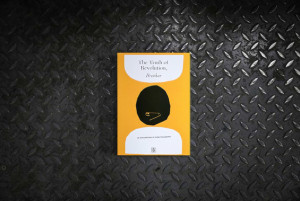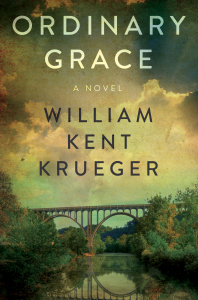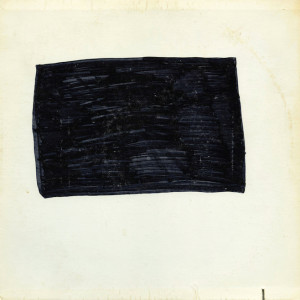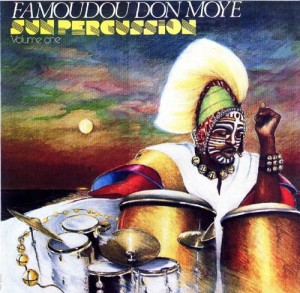Archives: Februar 2015
2015 19 Feb.
This Is My First Day and I’m Indian and I Work at a Gas Station
Michael Engelbrecht | Filed under: Blog | RSS 2.0 | TB | 2 Comments
This is the title of the song that will end the forthcoming album Universal Themes by Sun Kil Moon. The title of the album may raise eyebrows – hopefully it’s laconic humour, self-irony, but the title of the last song sounds ultimately promising, and I cannot believe it is n o t an exceptional song. The problem is we’ll have to wait months to hear it. June. Even the six or seven Manafonistas at the Northern Sea won’t yet have it in their ears. But some readers may even not have heared Sun Kill Moon’s probably greatest album, Benji, from 2014, it’s about, well, universal themes, in this case, death, death, death, and love, love, love. Just listen to „Ben’s My Friend“. Mark Kozelek delivers his songs in a kind of stream-of-consciousness-mode. Interesting: when this song-writer started with the Red House Painters, I didn’t like the grey voice. Something has changed, and I really like to listen to every of his words and sentences. Why? The voice has turned from grey to blue, swinging deep blue.
2015 18 Feb.
Paul De Jong, formerly known as one half of The Books, or: slow-braised until the music slides from the notes
Manafonistas | Filed under: Blog | RSS 2.0 | TB | Comments off
Ob man angesichts der Weltlage eine wunderbare Spätnachtsmusik hier einstellen kann, einfach so?
Den „wooow!“-sagenden Moderator am Ende möge man gelegentlich mit dem Waschlappen erschlagen.
2015 18 Feb.
Junoon, New York, and the spicy language of Indian cooking
Manafonistas | Filed under: Blog | RSS 2.0 | TB | 5 Comments
The English language has an immense word treasury. More words than your trusted teacher may ever have come across. Those words a well-speaking German human being does not really know work as a source of inspiration in the right context. Imagine you have heared an old raga recording of Ravi Shankar, or you´re just back from the first Central Park visit in your life. You’re very hungry, keen on a great Indian restaurant. You find a description of JUNOON in the blue nowhere of the net. And here, every unknown word is fun and does increase your appetite. And even if you know all the words: fantasies are spinning off. „The heart and soul of this luxe Chelsea eatery is its glassed-in spice room, where chef Vikas Khanna hand-grinds and mixes house blends each morning. He deploys seven whole spices – including star anise, cloves and cardamom pods—in a pungent, burgundy-hued curry that coats a lamb shank, slow-braised until the meat nearly slides from the bone. Other evidence of the room´s sorcery fills the regionhopping menu, organized by traditional methods of Indian cooking – not just tandoor and handi (pot cooking), but also tawa (cast-iron) sigri (fire pit) and patthar (stone). Along the way, the thoughtful spicing also appears in plump Goan shrimp with blazing piri-piri sauce, a ginger-marinated chicken kebab cooled by pureed avocado and even cocktails served in the sultry front lounge.“ At least two Manafonistas will be at this place in 2015 and possibly share their experiences spicing them with some strange sounding words. An interview with Vikas Khanna is in preparation.
In das Schreiben über Musik bricht immer wieder die Alltagsrealität. Medienvermittelt oder direkt, durch Berichte von Zeugen, die ziemlich nahe am Geschehen waren, noch immer sind und … mir nahe stehen. Nørrebro, Kopenhagen. Dies vor der Haustür. Wir versuchen es zu fassen … nach und nach …



Hier ein VIDEO der Szenerie
Vor 50 Jahren bombadierten die USA Nordvietnam. Malcolm X wurde erschossen. Die Beatles brachten Help heraus. Jungs liessen sich die Haare wachsen, Maedels schluepften in Hotpants. Neue Lebensformen wurden ausprobiert. Es gab eine kreative Verschwisterung von kuenstlerischer und politischer Subversion. Happenings fanden statt, Malerei, Musik und Politik waren auf dem Asphalt. Leider nicht sehr lange.
Vor 40 Jahren veraenderte sich das Outfit, man trug schwarz, Haare wurden gestutzt, Sicherheitsnadeln waren Gesichtsaccessoire. Punk war angesagt, in der Mode, in der Musik. Dead Kennedy, Crass, unvergesslich der Besuch eines Ramones Konzerts. Punk is dead? Ja, leider die Ramones, allesamt. Jetzt ist in einem kleinen englischen Verlag namens Situation Press ein Buch erschienen: The Truth of Revolution, brother. Verantwortlich fuer die 30 gefuehrten Interviews mit ehemaligen Punkbandmitgliedern sind: Lisa Sofianos, Robin Ryde und Charlie Waterhouse. Sie haben ein Jahr lang bei diesen recherchiert und ihnen u.a. die Frage gestellt: „What did it all mean?“
Wie zukunftstraechtig waren die 60er und spaeten 70er Jahre?
Schoen hier auf Manafonistas ist, dass diese Zeiten ab und zu nachwirken.

2015 16 Feb.
The Joey Letter (Radionacht Klanghorizonte, 21. Februar, live)
Michael Engelbrecht | Filed under: Blog | RSS 2.0 | TB | 1 Comment
Hello, Joey,
quiet days in Paris. Funny encounters with strangers. Women who look like 25000 dollars. Drinking good cidre from Bretonia, seeing Pynchon’s/Anderson’s „Inherent Vice“, great movie: film noir, slapstick, the mad, mad world, California round 1970, all rolled into one. The other great film I saw this year, was „Birdman“. And, in the very quiet hours, while looking from time to time to the Eiffel Tower from my little hotel room (lovely solitude!), planning the next edition of the „Radionacht Klanghorizonte“. On February 21st, beginning one hour after midnight, at 1.05. (www.dradio.de / Deutschlandfunk / live stream / mp3). Here it is, a kind of preview for the inner ear:
The first hour rolls off with a band I’ve never heared of before: what do three musicians find in a cellar room in Cork, Ireland, and how does that inform their improvisations? And, well, in a book about „one hundred masterpieces of Teutonic Electrokraut“ I would definitely list the second album of the show, a „killer“ from 2015, synthesizer-percussion-studies with a distant African vibe. Released by Bureau B, real Kraut-diggers.
Then: strollin‘ through the woods, meeting animals, singing poems, playing a collection of northern harps: producer Manfred Eicher often finds a new skin for an old ceremony. And after „the most beautiful sound next to silence“? Three Russians under a grey Moscowian sky inventing mysterious fog machines – eight ways of going underground, followed by another reflection of dark Russian times handled by a German group mixing desolation, heartfelt melodies with invocations of the „Donaudelta“. Peter Handke was there! :) Then another Eicher production from Oslo is bringing back (among other things) the energy of an old master drummer in a work of sublime delicacy.
After that a peculiar electronic wilderness will revise your picture of Carnival in Rio. There are ghosts in that big city, flawed characters attracted to the underworld. The lost themes of an old specialist of horror and mystery delivers suspense and focus with his naked electronica. Congolese musicians with nicely deranged instruments are walking on the jungle line. And at the end of the first hour a great English drummer (in a a three hour show quite full of strange drum sounds) is delivering minimal jazz with a hint to rave culture, the Necks, and Carebean Islands. Or the islands in your head. Hypnotic. Ghosts everywhere, and some of them in damn good shape.
The second hour is about time traveling. It starts with a buried treasure from a Camden flea market: a pure solo percussion album from 1975 created by an urban bushman – the jazz afficionados of the Manafonistas will surely know that guy. 1973: a still unknown band from NYC releases its second studio work, exotic chamber music with distant landscapes and canyon songs. 1981: one of the most creative German studio wizards meets another pioneer of Krautrock for a journey into raw, unpolished territories. In between some Cornish weirdness from faraway places of the mind. Mr. Underworld is writing a letter about his persona of 1994, and tells me how the best album of the band created a kind of „new tribe of listeners“. And at the end of the second hour another hypnotic work, a melange of an Amercan classic, 50 years old, with African instruments is making your day, your night. In the streets of Bamako.
The third hour is a close-up exercise in remembering ten years of Kristiansand’s Punktfestival. It’s time for a rediscovery of things and sounds you only think you know well. It all started (and starts) with the lyrics of a native Kristiansand writer and his twilight zones: „Theory Of The Singular“. So, Joey, follow the usual suspects creating their live-remixes and studio works and, en passant, establishing a new chapter of Norwegian music history. Two words for it: understatement and passion. Ghosts from the past, echoes falling apart – the alien world of Cyclobe, the library research of two sisters in little villages of the Northumbrian coast. The Punkt agenda: „Skip agendas. Be prepared for looking at exit signs!“ The three hours will end with a bang. You could call that bang a poem. A railway to nowhere with nothing to hide. So to speak.
Sincerely yours, Michael
2015 16 Feb.
Geschichten eines Absteigers (2) – Die Rückkehr des Superaffen
Michael Engelbrecht | Filed under: Blog | RSS 2.0 | TB | Comments off
In meinem Discman drehte sich in den letzten Tagen vor allem die feine Reggaescheibe von Lee Perry, THE RETURN OF THE SUPER APE, besonders schön morgens, im dicken Mantel, im Jardin Du Luxembourg, Nebel über der Wiese. In Dortmund dachten alle an eine Wende zum Guten, nach der Verlängerung des Reus-Vertrages, nach dem Sieg gegen Mainz, aber dann kam das Spiel in Stuttgart, und es war wieder Schluss mit lustig, von wegen dritter Sieg in Folge (nach meiner Vision in der Bäckerei, Sie erinnern sich, kann ich die Dinge, die noch geschehen werden, aus der Zukunftswarte betrachten) – jetzt ist der Tabellenkeller wieder breit aufgestellt, und der Abgrund gähnt, nicht aus Müdigkeit, sondern aus Gier. Es wird so verdammt unlustig. Neben Lee Perry hatte ich in meiner Pariser Wanderjoppe noch die „Schattendokumente“ von Sven Kacirek und Stefan Schneider, die ich gerne, abends im Hotel auflege. „Bureau B“ hat mit Shadow Documents ein dunkles, überraschenderweise rezeptfreies Elektronikum der Extraklasse vorgelegt.
Damals, als ich meinen demokratischen Protestbeitrag leistete, „Dr. Gott“ und seinen auch später noch realitätsfernen Gefolgsmann Meier aus dem Amt zu vertreiben, zogen, wie heuer im Abstiegsjahr 2015, dunkle Wolken über der Stadt auf, und ich sollte an jenem denkwürdigen Tag, als der Bankrott des Clubs in Sichtweite rückte, lang ists her, ein ganz privates Desaster erleben.
Aber klar doch: ein gewiefter Blick zu den Sternen, wissen, in welchem Quadranten Mars dir auf dem Kopf tanzt, und du kannst sicher sein: dieser Tag könnte nur mit einer Schusswunde enden. Wie bei Reus, wurden auch bei mir Vertragsmodalitäten geregelt, und nun ist ein prächtiges Jahresgehalt für mich unter Dach und Fach gebracht, der Herr der Jukeboxen musste sein Privatvermögen anzapfen, eine Jukebox von einer Spedition in meine Kopenhagener Zweitwohnung transportieren lassen, und den ganzen Scheiss auch bezahlen. So kam es ihn schmerzhaft und teuer zu stehen, meinen Manafonistas-Vertrag zu verlängern. Aber was tun Freunde nicht alles, um die Dinge wieder harmonisch zu gestalten. Gegen Reus war ich ein Schnäppchen. Ich veröffentliche weniger (etwa Wolframs, vielleicht Lajlas Schlagzahl, die Enthüllungen kultureller Wahrheiten werden gnadenlos bleiben :):):) – ich bin froh, wieder da zu sein, auch wenn ich leider aus dem Lesekreis der „gewöhnlichen Gnade“ ausscheiden musste. Time will never be on my side.
An jenem Abend also, als das Schicksal des BVB und mein eigenes, eine unheilige Allianz einigingen, fuhr ich mit einer alten Freundin in den Bahnhof Langendreer, eine gemütliche Szenekneipe mit einem feinen Programmkino um die Ecke, wo ich Jahre zuvor meinen einzigen Auftritt als Stummfilmmusikant hatte. Ich spielte auf einem absichtsvoll verstimmten Klavier dezente Tontrauben zu Maya Derens Meshes of the Afternoon. Aber ich schweife ab.
Sex war kein Thema mehr zwischen Klaudia, der Dritten, und mir. Wir sprachen über Musik, Musik, und über Musik. Einmal, an einem Abend mit Daniel Lanois in Frankfurt, hatte sie sich in den Kanadier verliebt, und ihm ganz offen ihre Zuneigung und Bettstatt angeboten, das war Jahre, nachdem ich ganz wild war nach Klaudia, der Dritten, nach ihrem Kussmund, der so riesig war, dass aufgespritzte Botoxlippen im Vergleich den Charme von ranzigem Schmalzgebäck verströmten.
Also, zwischendurch ging ich auf die Toilette, hielt meinen ahnungslosen Schwanz ins Pinkelbecken, und hatte keinen Schimmer, was mir wenige Sekunden später widerfahren sollte. Ich war nicht vorbereitet. Ich machte mich auf den Weg zu unserem Tisch, und auf dem weitläufigen Holzboden kam sie mir entgegen. SIE. Meine Zukunft. Meine Schwester. Celine oder Julie auf einer Bootsfahrt. Seriously Sexie Sadie. Jamie Lee Curtiz‘ Jüngere Schwester. The beauty of Wynona. Ihr Haar war blond gelockt.
Ich sah ihre Augen, und im Nu fanden sich meine Hände an Handschellen gefesselt in einem skurrilen Waldhotel mitten im Ruhrgebiet. Ich sah ihre Augen, und es war um mich geschehen. UND SIE SAH MIR IN DIE AUGEN. Nicht einfach nur so. Einerseits seltsam wach, andererseits, als würde gerade der Karneval in Rio eröffnet. Das war wohl Liebe auf den ersten Blick, und ich war im Zeitraffer untwegs in unserem zukümftigen Leben, zwischen knallharten Bondage-Spielen und Shakespeares 18. Sonett. (Vergessen Sie diese Blümchensexscheisse von Fifty Shades of Grey, SM für Doofe).
Wir gingen aneinander vorbei (subjektiv geschah das alles in Superzeitlupe, Hitze flog durch meinen Körper, ich dachte in dem Augenblick tatsächlich an Saturday Night Fever, die Bee Gees, ohne den Lackaffen John Travolta). Unsere Wege und Blicke und Schicksale kreuzten sich also, und nach etwa zwei Sekunden, drehte ich mich um, zeitgleich drehte sie sich um, und sprachlos übermittelten wir lauter wahre Empfindungen, Liebesbriefe im Stenogrammstil. Dass wir uns gemeinsam umdrehten und ansahen, hatte etwas von Duellen im Wilden Westen, nur wurde hier mit Amors Pfeilen geschossen, in diesem Ballett eines wahr werdenden Traumes, und ich ging unsichtbar zu Boden.
Und dann ging jeder weiter. Als wäre nichts gewesen. Mein Gehirn arbeitete im Overdrive-Modus. Also. Ich glaubte, ich hätte sie zuvor flüchtig im Biergarten sitzen sehen (mit Mann? mit Kind? was tun?). Der Plan war schnell gereift. Ich zahlte, fuhr Klaudia, die Dritte, nachhause, 10 Minuten Hinweg, raste zurück, und betrat den Bahnhof. Showdown. Ich war hellwach.
Alles ist ja ein bisschen miteinander verstrickt. Sie konnte dort mit Kind und Kegel, mit Mann und Hund sitzen – unsere Stunde hatte geschlagen, und jetzt galt es, ihr Ort und Zeit unseres ersten Treffens ins Ohr zu flüstern, ihren Duft einzuatmen (Lavendel? Flieder? Der schönste Schweiss der Welt?) – und bis zum Abend des ersten Kusses den ganzen Werkkatalog der Beatles vorwärts und rückwärts zu spielen. Sie war nicht mehr da. Ich setzte bei der Chefkellnerin eine Belohnung aus, hinterliess meine Nummer, kehrte immer wieder zum Ort des Nichtgeschehenen zurück. Ich sah sie nie wieder. Over and out.
P.S. Ich liebe diese Morgenzeit im Park. Ein Croissant aus der Tüte. Ich war viel zu früh wach geworden, und sass neben Männern und Frauen von der Frühschicht in einem Arbeitercafe, schnappte ihre Dialoge auf. Fetzen von Intimität, in denen ich mich vorübergehend einrichtete. Zwei Tische weiter sass Patrick Modiano, kein Witz. Er soll hier allgegenwärtig sein, gerade im Jüdischen Viertel. Ich habe vor vielen Jahren einige Bücher von ihm gelesen, alles Pariswanderungen. Verlustmeldungen. Eine genaue Beobachtungsgabe für das Flüchtige. Seine Bücher haben das Tempo archetypischer ECM-Platten. Nimm Paul Bleys Open, To Love, und du hast den Soundtrack eines Modianos. Es wäre ja nun ein gefundenes Fressen für einen Journalisten, einmal diesem Spurenleser Verschollener durchs Dritte Arrondissement zu folgen. Den Spiess umzudrehen. Was für eine feine Ironie, aber mein Taktgefühl siegte. Bald war ich wieder in meinem Park, und liess die „Herrlichen Löcher“ in der Musik Lee Perrys ihre Wirkung tun. Getting the codes, the hints, the traces. Als ich in der Nacht träumte, durch eine Fotogalerie zu schleichen, die beinharten Bilder Weegees aus einem alten New York an die Wand genagelt, hatte ich Bettye LaVettes neues Album Worthy in den Ohren. Und wie sie Dylan und die Beatles verwandelt. Und mich. And a lot of that old hot shit.
2015 15 Feb.
“Ordinary Grace” – A Parallel Reading, Part 3
Manafonistas | Filed under: Blog | RSS 2.0 | TB | Comments off

„She´s mad at Dad.“
„What did he do?“
„Nothing. But he´s God.“
„If you mention God to me one more time, I’ll leave you, I swear I will.“
Ariel is found dead with a cracked scull and – as it turns out – pregnant. Ordinary Grace is no longer just another coming of age novel. Tom and Huck are gone. Now it´s all about loss, grieve and trying to cope. „Loss, once it´s become a certainty, it is like a rock you hold in your hand. It has weight and dimension and texture. It´s solid and can be assessed and dealt with. You can use it to beat yourself or you can throw it away.“
Whereas Frank´s father Nathan seems to find faith, hope and love in God, Frank´s mother Ruth blames God and her husband for their misery. Ruth is suffering. „She was flesh without spirit, eyes without sight.“ Extraordinary and strong-minded Ruth who is a superb musician and singer, who likes to smoke and drink and hates cooking and ironing, is paralysed for a while and then turns her anger into action. She leaves her family.
The murder mystery will be solved easily. What still gets me hooked is the quite impressive lucidity of Ordinary Grace´s multilayered story which is far from being simple and does not seem to offer simple solutions.
Thomas Schirmer
–
Ariel is dead.
Frank found her floating in the river: „The day was hot and windless and the sky a china blue and I alone on the railroad bridge and cried my heart out above a river that seemed to have none.“
I only remember another book which moved me to tears too: Die Brueder Loewenherz, written by Astrid Lindgren. The book starts so fatal that I couldn’t keep reading it. Years later I tried again to read that sad story about the two brothers who are similar close as the two boys of the Drum family. One after the other died.
Jake: I´m afraid you´ll die, too.
Frank: I won´t ever die, I promise.
Jake: Everybody dies.
Frank: I won´t. I´ll be the first person who never died. And you´ll be the second.
Jake: I won´t mind dying. I just don´t want you to die.
The brothers talked about death just after Frank returned from church. Jake and Ruth had stayed at home. What a great idea of the author to let their father give a sermon about his quarrelling community using the words of the first letter to the Corinthians.:
„What´s left to us when that which we love most has been taken? I will tell you what’s left, three profound blessings. In his first letter to the Corinthians, Saint Paul tells us exactly what they are: faith, hope and love.“
Lajla Nizinski
–
OG
Oh, soz.
Soz, parallel readers. I’ve bailed. I skimmed to the end. Yuh huh …
Got fed up of Frankie’s interminable 60s-simulacrum world. Jello fucking Franco-American Spaghetti fucking Studebaker fucking soda fucking John F. Kennedy and Nikita Krushchev fucking nuclear war. Fucking blah.
But …
An association bled into my mind during chapter 3. The 1957 novel „There Is A Happy Land“ by Keith Waterhouse. Extravagantly, profoundly depressing, it tells the story (from first person viewpoint) of an 11 year old Leeds council estate kid over some months, starting during a summer in the late 1930s. In a way not unlike Catcher in the Rye, events are recounted from a point in the narrator’s life not too far on from the time when the story takes place. The memories are new, vivid and made all the more excruciating because the narrator hasn’t matured enough yet to see the story for what it is – for him it’s just a time in his life, some stuff that happened. Waterhouse’s novel makes Louis-Ferdinand Céline’s „Voyage au bout de la nuit“ look like melodrama by comparison. „There Is A Happy Land“ is a mediumistic classic, by the way. Read it. I’m grateful to William Kent Krueger for reminding me of its existence.
OG? Naw. Soz. Enjoyed some of what I read. Enjoyed not enjoying the rest. But Life’s too fuckin‘ short. The Bone Clocks now.
Soz.
Ian McCartney




